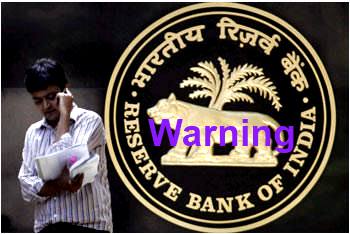The Reserve Bank of India has issued an advisory to the public recommending them to thoroughly evaluate their financial investment decisions, consisting of making deposit with NBFCs.
The FAQs describe in detail the numerous kinds of monetary entities and the regulations regulating them. They also have detail where members of public can lodge complaints in case some financial entity is found to be performing business unauthorisedly or does not repay the deposits.
The Frequently asked questions, for example, state that the Reserve Bank controls Non-Bank Financial Business that conduct monetary activity as their principal company; it has authorised just a few Non-bank Financial Business to accept deposits; all bundled entities should always be authorised to collect deposits either under the Reserve Bank of India Act 1934 or under the Companies Act, 1956; and it does not control chit fund activities or Collective Financial investment Schemes (CIS).
The FAQs also state that a detailed list of NBFCs authorised by the Reserve Bank to accept deposits is available on the RBI site (www.rbi.org.in? Sitemap? NBFC List? List of NBFCs Permitted to Accept Deposits) and has advised the members of public to inspect the list before placing deposits with Non-Banking Financial companies.
The Reserve Bank has actually been, on a number of events in the past, through news release and with its outreach and sensitisation programs performed by its Regional Offices, cautioning the public not to fall prey to make-believe offers promising unsustainable returns by individuals, unincorporated bodies and companies.
The RBI Frequently asked questions likewise recommend members of public to instantly register their grievances in case they notice any business accepting deposits unauthorisedly or not repaying the principal and/or interest with the local police or with the Economic Offences Wing of the State Police and in case the entity is a business, then register grievances with the Registrar of companies.
RBI Advisory on What \* to check prior to making deposits with NBFCs.
A depositor wanting to place deposit with an NBFC must guarantee that:.
The NBFC is registered with RBI and is particularly authorised to accept deposits. This can be inspected from the list of deposit taking NBFCs published on the RBI internet site – www.rbi.org.in? Sitemap? NBFC List. The depositor should examine the list of NBFCs allowed to accept public deposits as well as check that it is not appearing in the list of companies restricted from accepting deposits.
NBFCs need to conspicuously show the Certificate of Registration (CoR) released by the Reserve Bank on its site. If an NBFC is authorised to accept public deposit, the certificate mirrors that.
RBI does not assure the repayment of deposits accepted by NBFCs.
NBFCs can not use the name of the RBI in any manner while conducting their business.
Currently, the optimum interest rate that an NBFC can pay to a depositor must not exceed 12.5 %. The Reserve Bank, nevertheless, keeps altering these rate of interest relying on the macro-economic environment. The Reserve Bank releases the modification in the interest rates on www.rbi.org.in? Sitemap? NBFC List? Frequently asked questions.
The depositor must insist on a correct receipt for every time of deposit placed with the business. The receipt should be properly signed by an authorised person from the company and must mention the date of the deposit, the name of the depositor, the amount in words and figures, rate of interest payable, maturity date and amount.

Leave a Reply